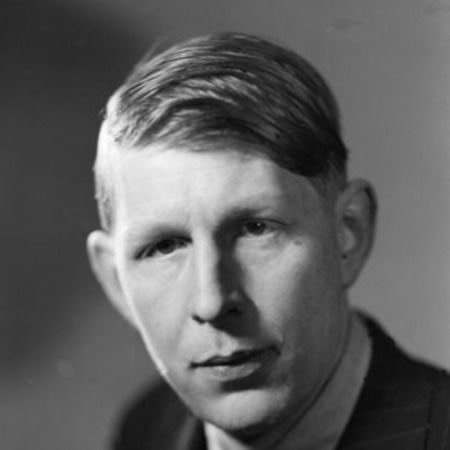| Stop All the Clocks (”Funeral Blues”) Stop all the clocks, cut off the telephone, Prevent the dog from barking with a juicy bone, Silence the pianos and with muffled drum Bring out the coffin, let the mourners come. Let aeroplanes circle moaning overhead Scribbling on the sky the message He Is Dead, Put crêpe bows round the white necks of the public doves, Let the traffic policemen wear black cotton gloves. He was my North, my South, my East and West, My working week and my Sunday rest, My noon, my midnight, my talk, my song; I thought that love would last for ever: I was wrong. The stars are not wanted now: put out every one; Pack up the moon and dismantle the sun; Pour away the ocean and sweep up the wood. For nothing now can ever come to any good. W. H. Auden |
Monsignor Ryan’s Reflections on “Funeral Blues” (Stop All the Clocks)
“Funeral Blues” (Stop All the Clocks) was written and first published in 1938. It is a poem about the immensity of grief: the speaker has lost someone important but the rest of the world doesn’t slow down or stop to pay its respects-it just keeps plugging along as if nothing has changed. The speaker experiences this indifference as a kind of torment and demands that the world grieves too.
Grief in the poem, is thus presented as deeply isolating, an emotion that cuts off the people who grieve from the world around them. It conveys an unrelenting pessimism best exemplified by the last line, “For nothing now can ever come to any good’. The poem is morose, sad elegy that wonderfully describes the feelings associated with grieving.
The poem is principally famous for modern audiences thanks to its appearance in the successful, romantic comedy, “Four Weddings and a Funeral”.
“Funeral Blues” (Stop All the Clocks) was written and first published in 1938. It is a poem about the immensity of grief: the speaker has lost someone important but the rest of the world doesn’t slow down or stop to pay its respects-it just keeps plugging along as if nothing has changed. The speaker experiences this indifference as a kind of torment and demands that the world grieves too.
Grief in the poem, is thus presented as deeply isolating, an emotion that cuts off the people who grieve from the world around them. It conveys an unrelenting pessimism best exemplified by the last line, “For nothing now can ever come to any good’. The poem is morose, sad elegy that wonderfully describes the feelings associated with grieving.
The poem is principally famous for modern audiences thanks to its appearance in the successful, romantic comedy, “Four Weddings and a Funeral”.
W. H. Auden 1907-1973
Wystan Hugh Auden was an English poet, playwright, critic and librettist. He exerted a major influence on the poetry of the Twentieth century. Although born in York he grew up in Birmingham. He was known for his outstanding intellect and wit. His first book of poems was published in 1930 with the help of T. S. Elliot.
Just before the outbreak of Word War II, Auden emigrated to the United States. It was there in 1948 that he won the Pulitzer Prize for poetry for his work, “The Age of Anxiety”. Much of his poetry is concerned with moral issues and evidences a strong political, social and psychological context. He collaborated in writing libretti for the musical works of Benjamin Britten, Stravinsky and Mozart.
Wystan Hugh Auden was an English poet, playwright, critic and librettist. He exerted a major influence on the poetry of the Twentieth century. Although born in York he grew up in Birmingham. He was known for his outstanding intellect and wit. His first book of poems was published in 1930 with the help of T. S. Elliot.
Just before the outbreak of Word War II, Auden emigrated to the United States. It was there in 1948 that he won the Pulitzer Prize for poetry for his work, “The Age of Anxiety”. Much of his poetry is concerned with moral issues and evidences a strong political, social and psychological context. He collaborated in writing libretti for the musical works of Benjamin Britten, Stravinsky and Mozart.

 RSS Feed
RSS Feed